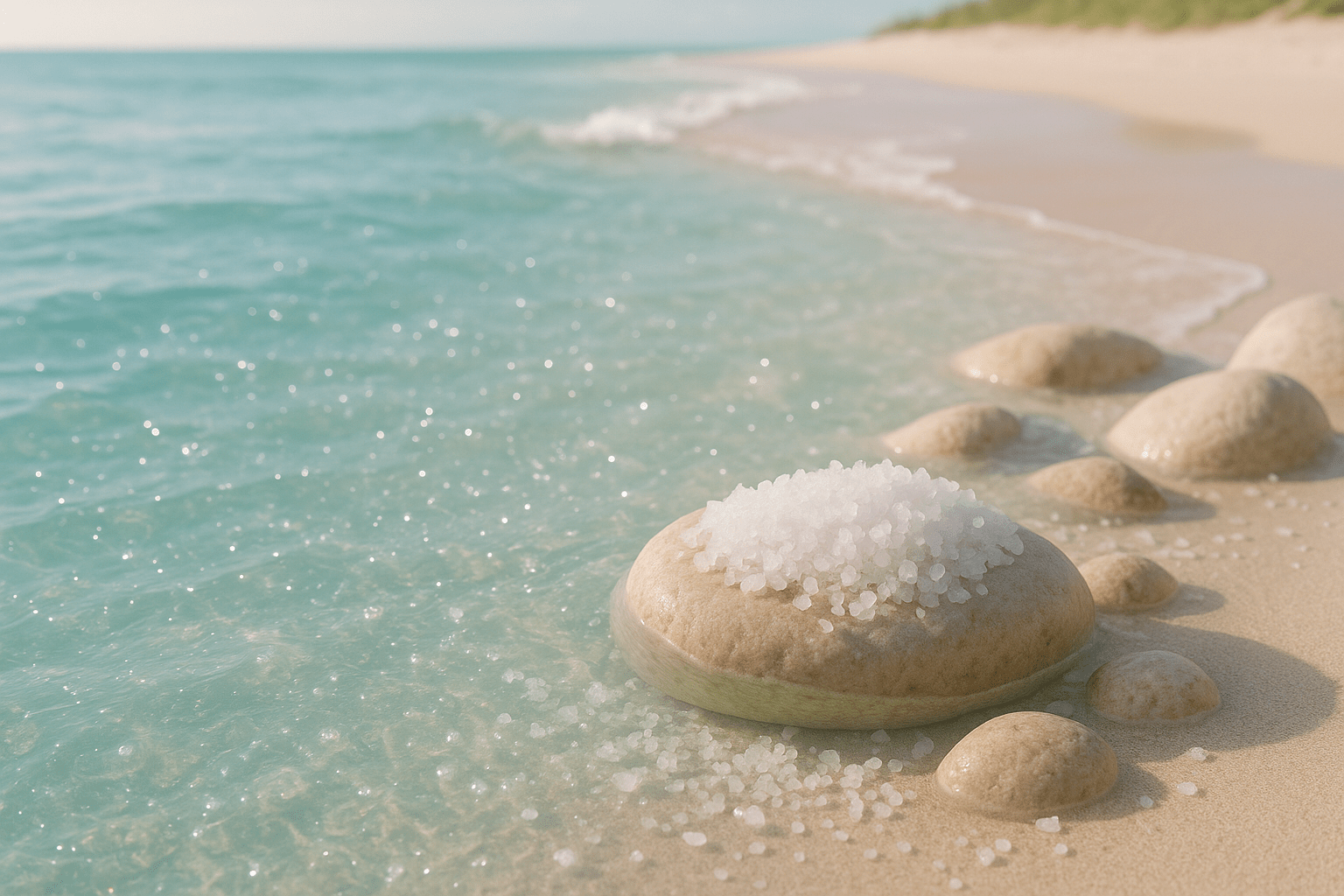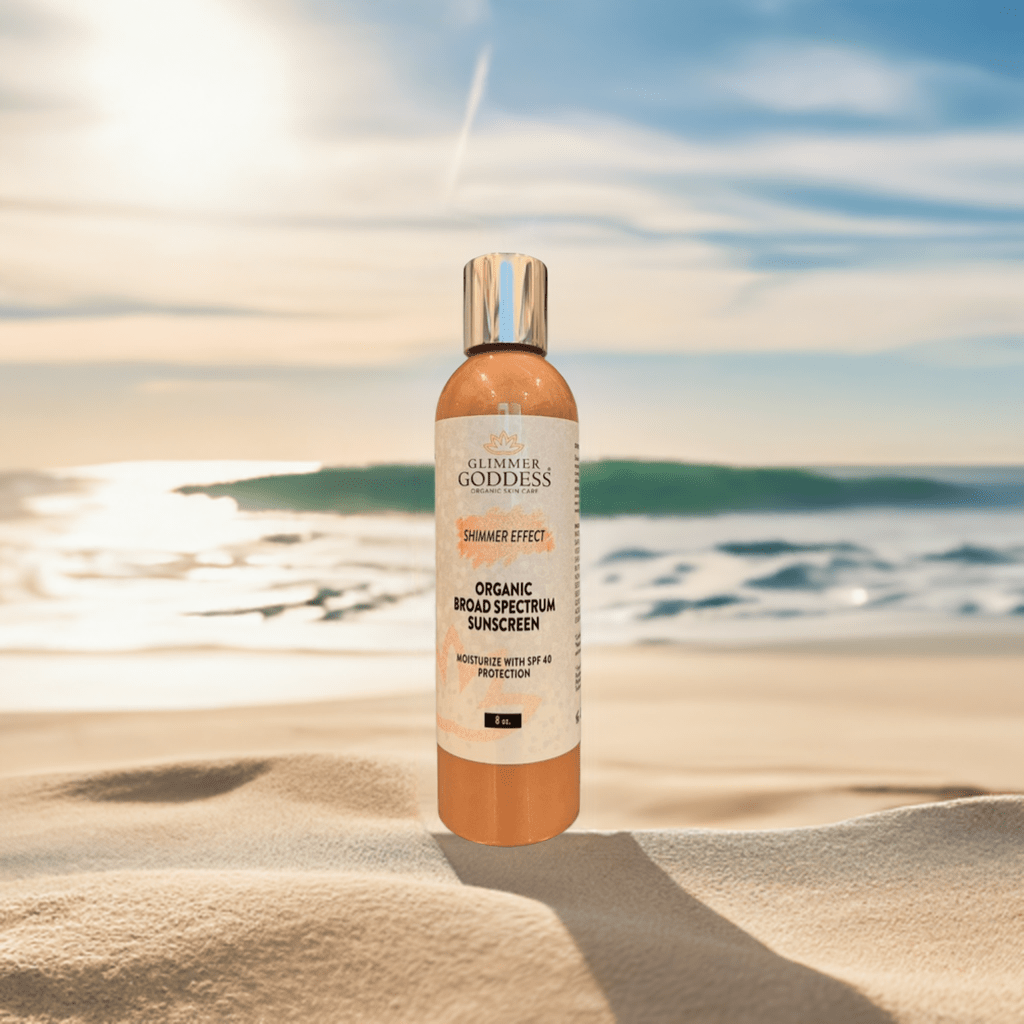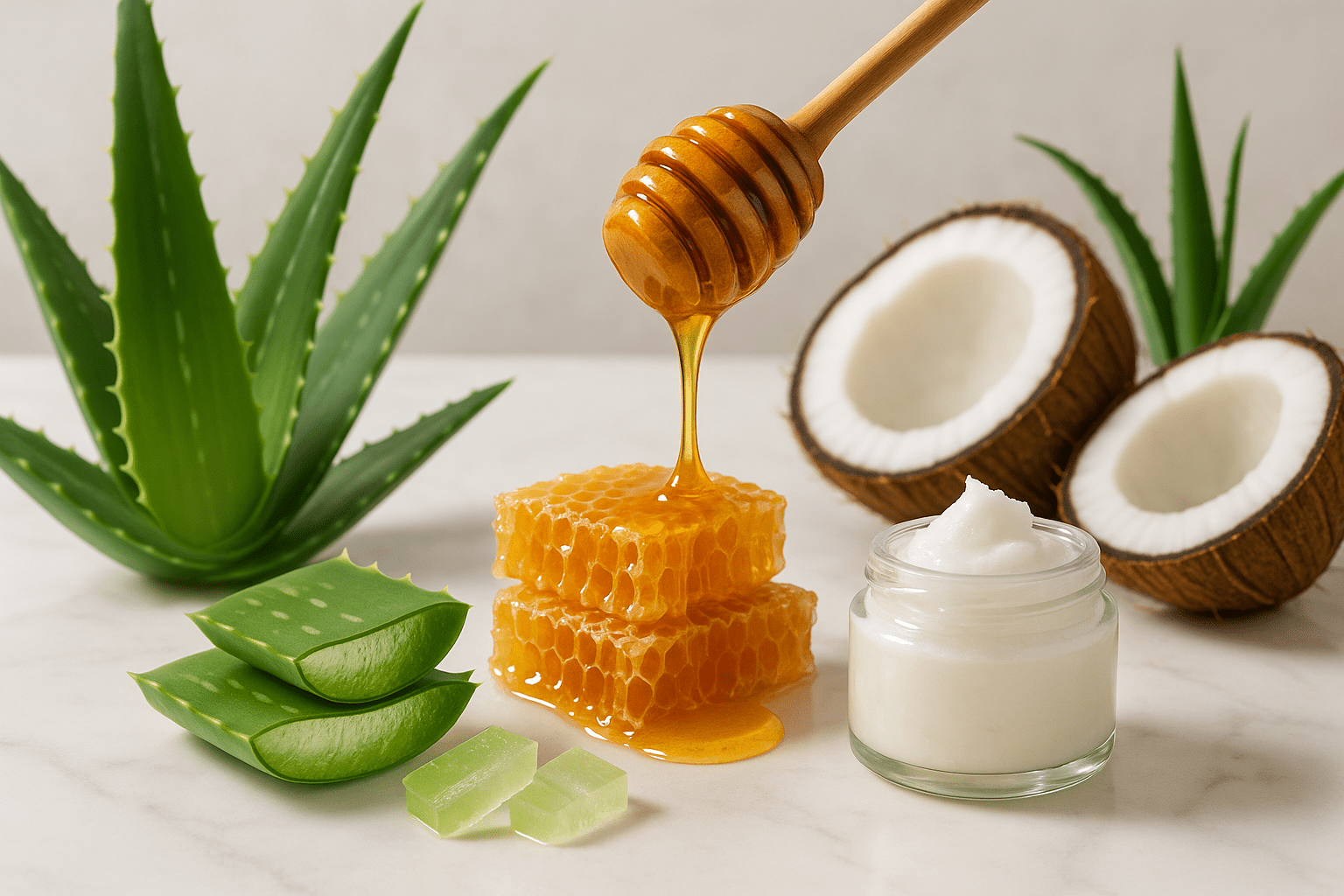
Ocean Water & Skin: Benefits, Risks, and Summer Skincare Tips
Is Ocean Water Good for Your Skin? Benefits, Drawbacks & Skincare Tips
The ocean is often associated with relaxation and vacation vibes, but it also holds secrets for skin wellness. In this article, we delve into whether beach water is good for your skin, explore the benefits and drawbacks of ocean exposure, and provide guidance on achieving a summer glow with the right skincare products.
The Surprising Benefits of Ocean Water for Your Skin
Is Salty Ocean Water Beneficial for Your Skin?
The ocean has long been revered for its therapeutic and restorative properties, and it's no secret that a dip in the salty sea can work wonders for the skin. But what is it about ocean water that makes it so beneficial for our epidermis?
Unraveling the Magic of Ocean Water
- The high mineral content in ocean water, including sodium, magnesium, calcium, and potassium, can help replenish and nourish the skin.
- The saltwater's natural antibacterial and anti-inflammatory properties can help soothe and calm irritated, inflamed skin.
- The buoyancy of the ocean can provide a gentle, therapeutic massage that can improve circulation and promote lymphatic drainage.
Can Beach Water Help with Skin Conditions?
From eczema to psoriasis, the ocean's healing powers have long been touted as a natural remedy for various skin ailments. But what does the science say about the potential benefits of beach water for skin conditions?
The Healing Powers of the Sea
- The high concentration of minerals in ocean water can help reduce the symptoms of eczema, such as itchiness and redness, by soothing and hydrating the skin.
- The antimicrobial properties of saltwater can help fight the bacterial and fungal infections that often accompany conditions like acne and rosacea.
- The buoyancy and soothing motion of the waves can alleviate the pain and discomfort associated with certain skin conditions, such as psoriasis.
What Are the Downsides of Swimming in the Ocean?
While the ocean's water can work wonders for our skin, it's important to be aware of the potential drawbacks and risks associated with swimming in the salty sea. Understanding these potential pitfalls can help us make informed decisions about our beach-going habits.
Potential Pitfalls of Ocean Dips
- The high salt content in ocean water can be drying and irritating for those with sensitive or compromised skin barriers, leading to increased redness, itchiness, and even infection.
- The ocean's water can be a breeding ground for harmful bacteria, viruses, and parasites, which can cause skin infections and other health issues if exposed.
- Prolonged exposure to the sun's UV rays while swimming in the ocean can lead to sunburn, accelerated skin aging, and an increased risk of skin cancer.
The ocean's salty waters are a veritable treasure trove of skin-nourishing minerals and therapeutic properties, but it's important to approach the sea with caution and moderation. By understanding the potential benefits and drawbacks, we can learn to harness the ocean's power to improve the health and vitality of our skin.
Unlocking the Secrets to Healthy, Radiant Skin this Summer
What SPF is Ideal for Your Beach Day?
Protecting your skin from the sun's harmful UV rays is crucial, especially during the summer months when you're spending more time outdoors. Choosing the right SPF (Sun Protection Factor) can make all the difference in keeping your skin healthy and glowing.
The Importance of SPF
- SPF measures a sunscreen's ability to protect your skin from UVB rays, which are the primary cause of sunburn.
- Higher SPF numbers indicate better protection, with SPF 30 blocking 97% of UVB rays and SPF 50 blocking 98%.
- However, no sunscreen can provide 100% protection, so it's essential to reapply regularly and seek shade when possible.
Selecting the Ideal SPF
- For a day at the beach or prolonged sun exposure, aim for an SPF of at least 30, but consider SPF 50 or higher for optimal protection.
- If you have fair skin or a history of sun sensitivity, choose an SPF 50 or higher to provide more robust shielding.
- For everyday use, SPF 15 to 30 is generally sufficient for short periods of incidental sun exposure.
Applying Sunscreen Properly
- Apply sunscreen liberally, using about one ounce (a palmful) to cover your entire body.
- Reapply every two hours, or more frequently if swimming or sweating.
- Don't forget to protect often-overlooked areas like the lips, ears, and around the eyes.
By choosing the right SPF and applying sunscreen diligently, you can enjoy your summer adventures while keeping your skin safe and radiant.
How to Choose the Right Moisturizer for Sun Exposure?
Maintaining healthy, hydrated skin is crucial during the summer, especially when you're spending more time in the sun. Selecting the right moisturizer can help your skin stay nourished and protected.
Understanding Your Skin Type
- Oily skin may benefit from a lightweight, oil-free moisturizer to avoid clogging pores.
- Dry skin requires a richer, more emollient formula to lock in moisture.
- Combination skin can be tricky, so opt for a moisturizer that balances hydration without feeling heavy.
Seeking Sun-Protective Ingredients
- Look for moisturizers that contain SPF 30 or higher to provide broad-spectrum protection.
- Ingredients like zinc oxide and titanium dioxide are natural, mineral-based sunscreens that can be gentle on the skin.
- Antioxidants like vitamins C and E can further boost the skin's defense against free radicals and sun damage.
Considering Skin Concerns
- If you're prone to breakouts, choose a non-comedogenic (non-pore-clogging) moisturizer.
- For sensitive skin, opt for fragrance-free and hypoallergenic formulas to minimize irritation.
- If you have signs of sun damage, look for moisturizers with hydrating and restorative ingredients like hyaluronic acid and niacinamide.
Applying Moisturizer Properly
- Apply moisturizer after cleansing and before sunscreen for maximum protection.
- Use a dime-sized amount for the face and neck, and adjust the amount based on your skin's needs.
- Gently massage the moisturizer into the skin, allowing it to fully absorb before heading outdoors.
By choosing the right moisturizer and incorporating sun-protective ingredients, you can keep your skin nourished, hydrated, and safeguarded from the sun's harmful effects.
What Are the Best After-Sun Products?
After a day of fun in the sun, your skin may need some extra care and attention. Investing in the right after-sun products can help soothe, hydrate, and repair any sun-induced damage.
Soothing Aloe Vera Gels
- Aloe vera is a natural, cooling ingredient that can provide instant relief for sunburned skin.
- Look for aloe vera-based gels or lotions that are fragrance-free and gentle on sensitive skin.
- Applying aloe vera after sun exposure can help reduce inflammation, redness, and pain.
Hydrating After-Sun Lotions
- After-sun lotions are designed to replenish moisture and nourish the skin.
- These products often contain ingredients like shea butter, glycerin, and ceramides to deeply hydrate and restore the skin's barrier.
- Applying an after-sun lotion can help prevent peeling and keep your skin soft and supple.
Restorative Face Masks
- Opt for soothing, nourishing face masks to target sun-induced damage on the delicate facial skin.
- Look for masks containing ingredients like green tea, vitamin E, and hyaluronic acid to calm inflammation and boost hydration.
- Leaving a face mask on for 10-15 minutes can provide an extra boost of rejuvenation after a day in the sun.
Cooling Mists and Sprays
- Refreshing mists and sprays can provide immediate relief and a burst of hydration for sun-exposed skin.
- Look for formulas infused with aloe vera, cucumber, or rosewater to soothe and calm the skin.
- Keeping a portable after-sun mist on hand can be a game-changer for quick, on-the-go skin relief.
Targeted Repair Serums
- Consider incorporating a serum with active ingredients like vitamin C, retinol, or niacinamide to help repair sun damage and promote skin renewal.
- These potent formulas can address issues like hyperpigmentation, fine lines, and loss of elasticity caused by sun exposure.
- Applying a serum after sun exposure can help kickstart the skin's healing process.
By incorporating a range of after-sun products, you can effectively soothe, hydrate, and repair your skin, ensuring a healthy, radiant glow long after your beach day.
Restore Your Skin's Radiance: An Evening Skincare Routine for Luminous Results
What Should Your Evening Skincare Routine Look Like?
Establishing a consistent evening skincare routine is crucial for maintaining healthy, glowing skin. By taking the time to nourish and replenish your complexion before bed, you can wake up to a refreshed, revitalized appearance.
Your evening skincare routine should focus on deep cleansing, hydration, and targeted treatments to address any specific skin concerns.
- Start by removing any makeup, dirt, and impurities with a gentle, yet effective, facial cleanser. This prepares your skin to fully absorb the subsequent products.
- Follow up with a toner or essence to balance your skin's pH and prepare it for the next steps.
- Apply a serum or ampoule that targets your individual needs, whether that's brightening, anti-aging, or addressing acne.
- Finish with a moisturizer that suits your skin type, ensuring your complexion is adequately hydrated and protected throughout the night.
By incorporating these essential steps into your evening routine, you'll be well on your way to achieving a luminous, healthy-looking complexion.
How to Rehydrate and Restore Your Skin after Sun Exposure?
Spending time in the sun can take a toll on your skin, leaving it dehydrated, irritated, and in need of some extra TLC. Fortunately, there are effective ways to rehydrate and restore your complexion after a day in the rays.
Implementing a restorative evening routine is key to replenishing your skin and helping it recover from sun exposure.
- Start by using a gentle, non-irritating cleanser to remove any sunscreen, sweat, or impurities that have accumulated on your skin throughout the day.
- Follow up with a soothing toner or essence to help calm any redness or inflammation.
- Apply a hydrating serum or essence that contains ingredients like hyaluronic acid, glycerin, or aloe vera to deeply nourish and rehydrate your skin.
- Finish with a rich, creamy moisturizer that will lock in all the hydrating benefits and provide a protective barrier for your skin.
By taking the time to replenish and restore your skin in the evening, you can help it recover from sun exposure and regain its healthy, radiant appearance.
Are There Special Treatments for Sun-Damaged Skin?
If your skin has sustained more significant damage from prolonged sun exposure, there are specialized treatments and products that can help address the issue and promote healing.
Incorporating targeted treatments into your evening routine can be a game-changer for restoring sun-damaged skin.
- Look for a gentle exfoliating serum or mask that contains ingredients like lactic acid or glycolic acid. These can help to gently remove dead skin cells and improve skin texture.
- Consider using a vitamin C serum or essence to help brighten and even out your complexion, as well as provide antioxidant protection.
- Incorporate a retinol or retinoid product into your routine to stimulate collagen production and minimize the appearance of fine lines and wrinkles.
- Finish with a nourishing, occlusive moisturizer that will seal in all the beneficial ingredients and provide a protective barrier for your skin.
By incorporating these specialized treatments into your evening routine, you can effectively address the signs of sun damage and help your skin regain its radiant, healthy glow.
In conclusion, taking the time to establish a comprehensive evening skincare routine is essential for maintaining healthy, luminous skin. Whether you're looking to rehydrate after sun exposure or address more significant sun damage, the right products and techniques can make all the difference in restoring your complexion's natural radiance.
Unlock Your Radiant Glow: Discover Our Sensational Sun Care Collection
Goddess Glow Shimmer Suntan Lotion SPF 40 – Reef-Safe Radiance
Experience the ultimate in sun protection and skin nourishment with our Goddess Glow Shimmer Suntan Lotion. Infused with natural ingredients and a luminous shimmer, this sunscreen offers SPF 40 broad-spectrum protection while enhancing your skin's natural radiance.
Elevate your sun care routine with our shimmer suntan lotion. Infused with natural ingredients, this lotion offers SPF 40 protection while imparting a luminous glow to your skin. Designed for all skin types, our shimmer suntan lotion is lightweight, non-greasy, and reef-safe, ensuring both your skin and the environment are cared for.
- SPF 40 Broad-Spectrum Protection: Shields against UVA and UVB rays.
- Natural Shimmer Effect: Enhances your skin's natural radiance.
- Reef-Safe Formula: Free from oxybenzone and octinoxate.
- Hydrating Ingredients: Moisturizes and nourishes the skin.
- Suitable for All Skin Types: Gentle and effective for everyone.
- Shimmering Glow: Illuminate like a sun goddess with shimmering mica minerals.
- Easy Application: Effortlessly apply and quickly dry this sunscreen with glitter for instant radiance.
- Water Resistant: Enjoy 40 minutes of water resistance while maintaining silky-smooth, hydrated skin.
Organic After Sun Lotion & Tan Extender + Luminizing Shimmer
Revive and rejuvenate your skin after a day in the sun with our Organic After Sun Lotion. This deeply moisturizing formula not only soothes and calms sunburn discomfort, but it also extends the life of your tan while adding a luminous glow.
This highly moisturizing organic after sun lotion wards off skin burn discomfort and skin peeling. It heals skin and extends the length of your tan, all while giving your skin a luminizing glow. We believe the best after sun lotion should provide long-lasting, soothing relief after long summer days. This glimmering tan extender is the perfect beach bag staple for all sun-loving Goddesses!
- Speed The Healing Of Sunburned Or Wind-Burned Skin
- Soothe, Cools, Moisturizes and Conditions Skin
- Soften, smooth, and calm the skin with just the right touch of bronzing shimmer
- Prevent Or Reduce Peeling while extending your tan
- Enriched with antioxidant vitamins B, C & E
- Packed with soothing moisturizing ingredients such as aloe vera, pineapple, papaya, and sweet almond oil
Organic Reef-Safe Sunscreen - Broad Spectrum SPF 40
Protect your skin and the environment with our Organic Reef-Safe Sunscreen. Crafted with certified organic ingredients, this broad-spectrum SPF 40 formula offers maximum sun protection while deeply nourishing your skin.
Introducing our Glimmer Goddess Organic Reef-Safe Sunscreen, a superior choice for your skin and the environment. Crafted with Certified Organic Ingredients for a gentle yet effective shield against UVA/UVB rays. Features un-coated non-nano Zinc Oxide, along with natural plant oils like red raspberry seed oil and pomegranate seed oil. Provides maximum sun protection while deeply moisturizing your skin. Lightweight and quick-drying formula absorbs rapidly without leaving a greasy residue. Waterproof and sweat-resistant for at least 40 minutes, perfect for active lifestyles.
- Crafted with Certified Organic Ingredients for a gentle yet effective shield against UVA/UVB rays.
- Features un-coated non-nano Zinc Oxide, along with natural plant oils like red raspberry seed oil and pomegranate seed oil.
- Provides maximum sun protection while deeply moisturizing your skin.
- Lightweight and quick-drying formula absorbs rapidly without leaving a greasy residue.
- Waterproof and sweat-resistant for at least 40 minutes, perfect for active lifestyles.
Q&A
What are the benefits of ocean water for skin?
Ocean water is rich in minerals like sodium, magnesium, and calcium, which can replenish and nourish skin. Its natural antibacterial properties help soothe irritated skin, making it beneficial for conditions like eczema and acne.
Can beach water worsen certain skin conditions?
Yes, the high salt content in ocean water may irritate sensitive skin or worsen conditions such as eczema or rosacea, leading to increased redness and discomfort.
What SPF should I use while at the beach?
For beach activities, it's recommended to use a sunscreen with at least SPF 30, but SPF 50 offers better protection. Reapply every two hours, especially after swimming or sweating.
How can I rehydrate my skin after sun exposure?
After sun exposure, cleanse your skin gently, then apply a hydrating serum or moisturizer containing hyaluronic acid or aloe vera to restore moisture and soothe irritation.
What are the best after-sun products for skin recovery?
Look for after-sun products like soothing aloe vera gels, hydrating lotions, and restorative face masks that help calm sun-exposed skin and replenish moisture.
How often should I apply moisturizer during summer?
Apply moisturizer at least twice a day during summer—once in the morning and once in the evening. You can reapply throughout the day as needed, especially after sun exposure.
Are there any special treatments for sun-damaged skin?
Yes, consider using Vitamin C serums for brightening, retinol or glycolic acid products to improve texture, and rich moisturizers for hydration to treat sun-damaged skin.
While beach water can offer unique benefits for skin health, it's essential to protect and nourish your skin properly. By choosing the right products and maintaining a balanced routine, you can enjoy the ocean's advantages while keeping your skin radiant and healthy throughout the summer.






